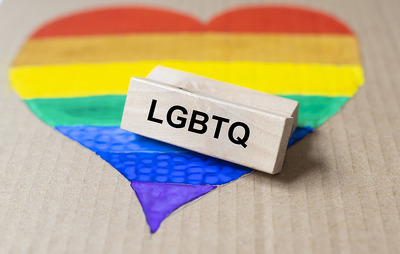
Members of the LGBTQ community face unique challenges, including increased substance use and abuse.
It’s widely known that the LGBTQ population is especially vulnerable to drug use, misuse, and addiction. However, the specifics change from year to year. The more we understand this phenomenon, the better positioned we are to reverse it. Enter the Substance Abuse and Mental Health Services Administration’s (SAMHSA) National Survey on Drug Use and Health: Lesbian, Gay, & Bisexual (LGB) Adults.
Here’s a closer look at key takeaways from the most recent report, along with what they mean for LGBTQ individuals and the people who love them.
About the National Survey on Drug Use and Health (NSDUH)
NSDUH is a comprehensive household interview survey covering substance use, substance use disorders, mental health, and treatment services for these disorders. Approximately 67,500 people are interviewed annually by in-person field interviews.
NSDUH data is used in two main ways:
- to provide a better understanding of the state of substance use and mental health issues in the US
- to inform and guide policy directions
LGBTQ Drug Use: Key Findings
There were some improvements to the landscape of LGBTQ drug use in 2018. However, there were also some backslides. Here’s a closer look at a roundup of key findings:
- There was no significant change in alcohol use initiation, use, and use disorder between 2015 and 2018.
- While prescription opioid misuse, heroin use, and heroin use disorder among LGBTQ young adults underwent a significant decline between 2016 and 2018, there was a significant increase in initiation of prescription pain reliever misuse among LGBTQ adults over the age of 18 as well as a significant increase in opioid misuse among adults over the age of 26 between 2017 and 2018.
- While there was no significant change in marijuana use in young LGBTQ adults, a significant increase did occur in those over the age of 26. In both populations, however, there was no significant change in marijuana use disorder.
- There was no significant change in cocaine use and prescription stimulant abuse among LGBTQ adults across all age groups.
- There was a significant increase in methamphetamine use and LSD use in LGBTQ adults over the age of 26.
- Serious mental illness and major depressive episodes increased among LGBTQ young adults between 2015 and 2018.
- Substance use and use disorder are high among LGBTQ adults with mental health disorders.
- Use of one substance among LGBTQ adults correlates with use of multiple substances, as well as major depressive episodes and serious mental illness.
- Substance use disorders are associated with increased risk of suicide among LGBTQ adults.
- A large gap in treatment needs continues to exist among LGBTQ adults.

Because LGBTQ individuals experience unique obstacles in their lives, they also require unique treatment strategies.
LGBTQ Drug Use: Areas for Improvement
It follows that NSDUH also revealed the need for ongoing prevention of substance use disorders in LGBTQ adults, as well as for increased training for clinicians to ensure cultural competence.
Because LGBTQ individuals experience unique barriers throughout their lives, including social isolation, rejection, and stigmas, research also indicates the need for safe spaces to deliver treatment. LGBTQ-targeted treatment has been proven to be especially effective when it comes to helping members of this underserved community address the underlying issues that led to addiction to best position themselves to overcome them.
Leading St. Louis area rehab Harris House has been providing LGBTQ addiction treatment for more than 50 years. If you or someone you love is struggling with addiction, call us today to learn about admissions.







